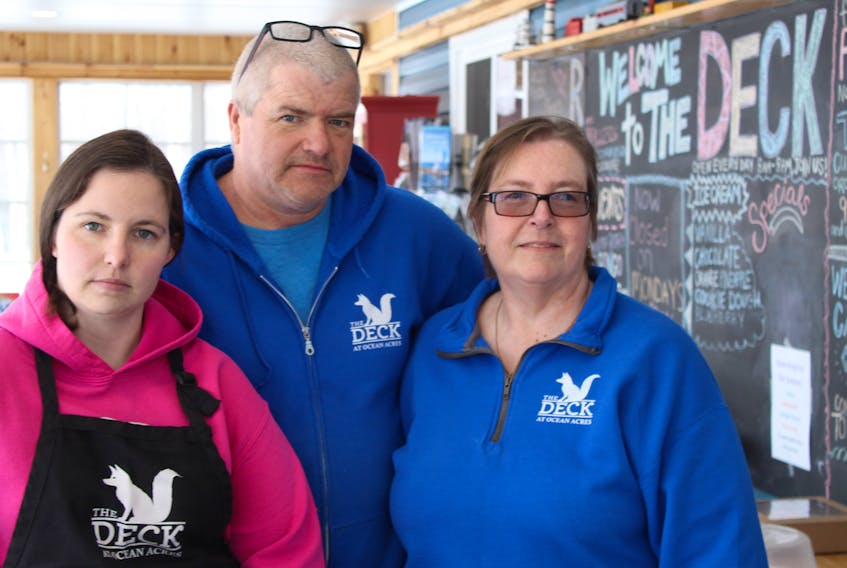MURRAY HARBOUR, P.E.I — Leslie Swift has to pay about $26 a month for each electric meter on her business's property.
"And we have 14 meters on our property."
That's about $360 a month, which is charged by Maritime Electric whether Swift's family business, Ocean Acres Cottages and Campground in Murray Harbour, uses electricity or not.
"Our operating costs continue to be the same."
She voiced some of her operation's concerns surrounding the coronavirus (COVID-19 strain) pandemic during a recent teleconference held by the Eastern P.E.I. Chamber of Commerce. About 15 people representing businesses or organizations from across the province phoned in to share how they're coping.
So far, much of the government funding being made available to help alleviate the pandemic's impact isn't proving helpful for Swift and her parents, who are also owners. Their campground's restaurant, The Deck, has been doing take-out and delivery orders for awhile now, for which only the three of them are required.
Most of the funding, however, is focused on helping employees who are out of work, Swift said.
"So much for the employee, and not a whole lot for small business," she said. "And because we're self-employed, we can't apply for those employee programs."
It's the day-to-day costs that have to be covered regardless of revenue that has them worried. When it comes to loan programs being offered for small businesses, Swift said that they are more frightening than beneficial for her.
"(They're) supposed to help, but it's just incurring me more debt and causing more payments that I may not be able to make in the near future."
Swift's business is one of the only year-round restaurants servicing the area and has been delivering food since before the pandemic. They have also temporarily reduced their cottage rates for people who are self-isolating.
She noted in a follow-up interview with The Guardian that they don't plan to close any time soon, and as more government loan and bailout programs continue to be announced, some may be less risky for them.
"They're trying to come up with new things, but they're just really, really slow at it," she said. "Either find ways to bring us more business or find ways to reduce our operating costs."
For Ranjit Chatterjee, owner of Instant Imprints in Charlottetown, it's the cost of paying rent on his shop's building that has him concerned.
"(It's) the biggest chunk of operational costs."
He's looking into the process of having this cost potentially deferred or mitigated for the time-being, as he had to temporarily close his business because it's considered a non-essential service.
"The impact on business over the last one-and-a-half weeks has been drastic," he said during the teleconference.
Lori MacGregor, executive director of the Eastern P.E.I. Chamber, facilitated discussion throughout the teleconference and took notes of people's questions or concerns to pass on to appropriate parties. She's hopeful that small businesses will recieve the aid they need.
"I think it'll come, it's just going to be slow for sure," she said.









